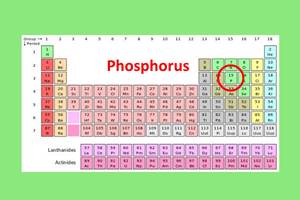Our need for phosphorus is almost as great as our need for calcium. In fact, phosphorus is the second-most abundant mineral in the human body after calcium, so it’s no wonder that it has a major part to play in achieving good health. It works with calcium to ensure strong bones and teeth, helps the kidneys to filter waste products, and plays a key role in how the body uses and stores its energy. On top of all that, phosphorus is also necessary for the production of DNA and RNA, and is needed to produce, maintain and repair our body’s cells.
Even though phosphorus is as important to maintaining healthy bones and teeth as calcium, we do not hear as much about its importance in our diet as we do about calcium. This is likely because most people get enough phosphorus from their diet. In fact, some get more than is necessary (particularly if they’re not getting enough calcium), which can cause a number of health problems. Too much phosphorus in relation to calcium can lead to an increase in your risk of cardiovascular disease. The greater your phosphorus intake, the more calcium you need.
The daily recommended intake for phosphorus is as follows:
Babies 0 to 6 months: 100 mg/day
Babies 7 to 12 months: 275 mg/day
Children 1 to 3 years: 460 mg/day
Children 4 to 8 years: 500 mg/day
Adolescents 9 to 18 years: 1,250 mg/day
Adults: 700 mg/day
Conditions such as diabetes, malnutrition and alcoholism can increase a person’s risk of phosphorus deficiency. This can also be a problem for those who have conditions that create problems with absorption, such as celiac disease and Crohn’s disease. Symptoms of phosphorus deficiency may include weak bones, stiff joints, fatigue, anxiety, loss of appetite, bone pain, irritability and irregular breathing.
Foods high in protein have the greatest amount of phosphorus. Meat and dairy products, as well as nuts, eggs and legumes are good sources of phosphorus in the diet. It can also be found in whole grains and dried fruits. You generally do not have to worry about not getting enough phosphorus in your diet, as it is so prevalent in most of the things we eat. For example, one three-ounce serving of meat contains between 150 mg and 250 mg of phosphorus. What is more important is that you get a sufficient amount of calcium so that it will balance out any excess phosphorus in you get from your diet so that it does not lead to adverse health issues.

